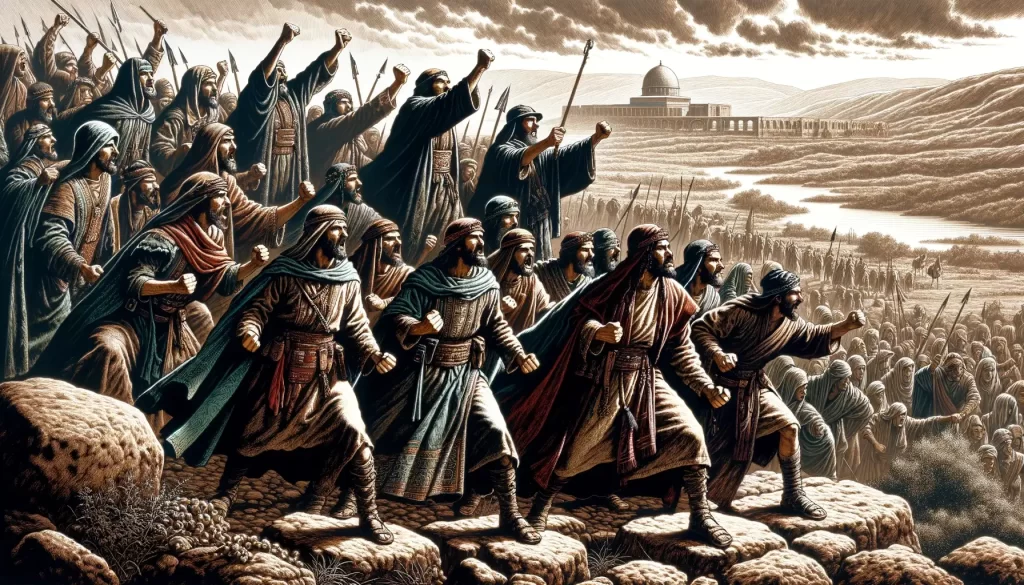
National Association of Christian Ministers Summary Series
The Zealots were a political and religious movement during the time of the New Testament. They were known for their fervent nationalism and opposition to Roman rule over Judea and Galilee. Here are some scriptural citations that may provide insights into the Zealot movement:
1. Judas the Galilean: The Zealot movement’s origins can be traced back to Judas the Galilean, who led a revolt against the Roman census. This event is mentioned by the Jewish historian Josephus, who referred to Judas as a “Zealot” (Acts 5:37).
2. Barabbas: Barabbas, the prisoner whom the crowd chose to be released instead of Jesus during the trial, is described as an insurrectionist, which could indicate his association with the Zealot movement (Mark 15:7; Luke 23:19).
3. Simon the Zealot: As mentioned earlier, one of Jesus’ twelve Apostles was identified as Simon the Zealot (Matthew 10:4; Mark 3:18). Though the New Testament does not explicitly mention his association with the Zealot movement, his designation as “the Zealot” suggests a connection.
4. The Insurrection in Jerusalem: Josephus accounts of several uprisings in Jerusalem during the Jewish-Roman War indicate the presence of Zealot factions in the city. These factions engaged in conflicts with other Jewish groups as well.
5. The Jewish-Roman War: The Zealots played a significant role in the Jewish-Roman War (66-73 AD). They were among the primary forces that resisted Roman rule, leading to the eventual destruction of the Second Temple in 70 AD.
It’s important to note that while the Zealots are mentioned in historical texts like Josephus’ writings, the New Testament does not extensively discuss or endorse their activities. The primary focus of the New Testament is on the life and teachings of Jesus Christ, as well as the actions of his disciples and early Christian communities.




